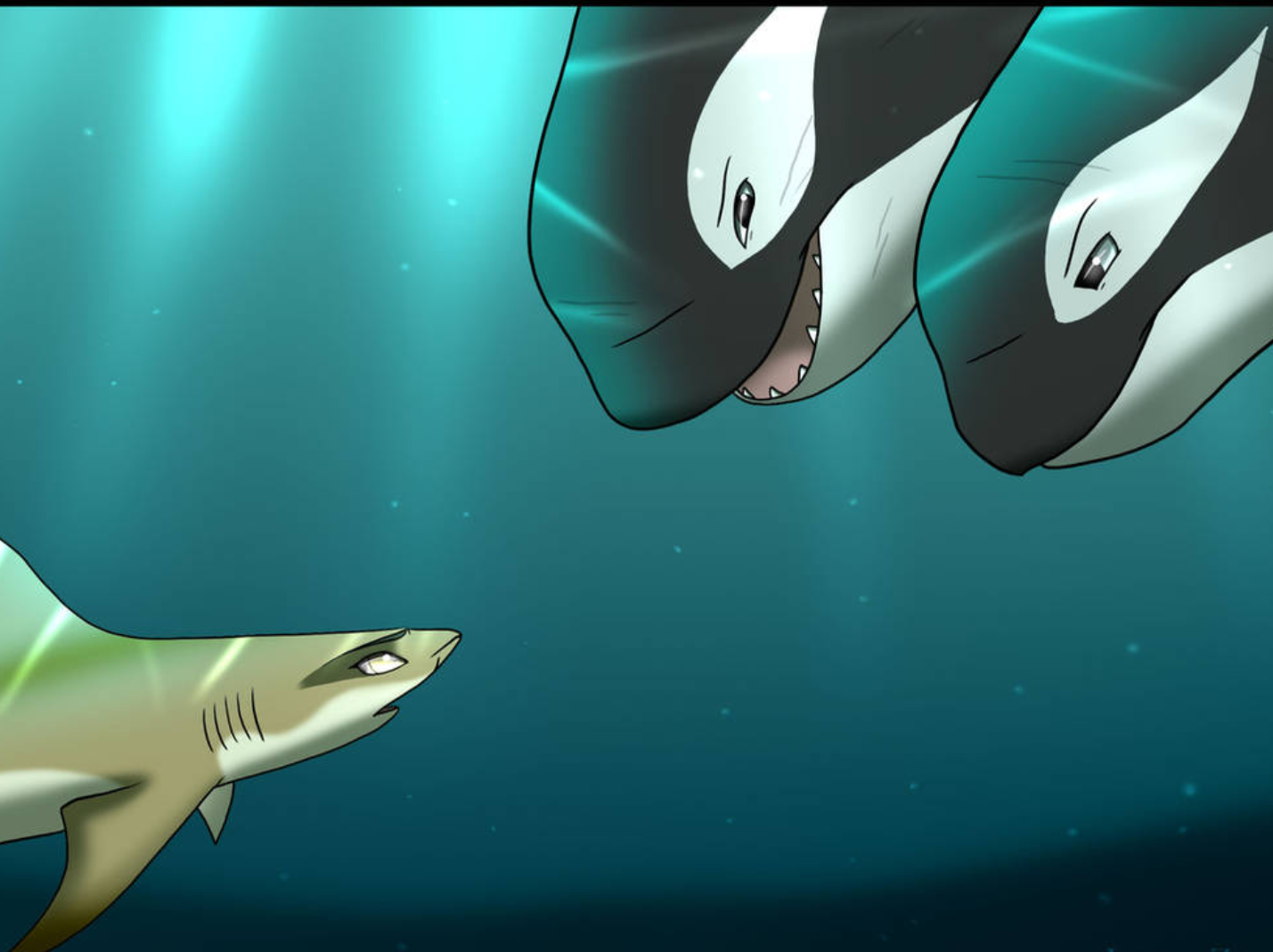
In Episode 8 of The Week in Science, I outline the details of the 2026 presidential budget request for science funding, highlighting some new studies that detail the complex migration of humans from Africa. This being the 50th anniversary of the premiere of Steven Spielberg’s movie Jaws, there’s news about the science of sharks, too!
The gushers of federal research funding are drying up. It’s now clear: the Trump administration is determined to alter the relationship between the federal government and the vast bureaucratic enterprise of science. Trump was elected as the change candidate. Here comes the change.
The National Institutes of Health will be facing a major reorganization. Multiple institutes, which once had spent their energies competing for bureaucratic turf, will be consolidated into just five. The National Science Foundation will see its budget cut by nearly 60 percent. The Department of Energy will lose only 14 percent of its science budget. The big winner will be the Defense Department, which will see its budget nearly doubled.
To follow will be much gnashing of teeth, rending of garments, and furious lobbying, mobilized to thwart Trump’s “war on science.”
We’ll probably be hearing a lot about the “end of science” as negotiations play out between Trump, Congress, and legions of complaining college administrators. Just remember that this is the sound rice bowls make when they’re being broken. “Diversity, equity, and inclusion” “research” is out. So are the solar and wind green boondoggles. No more nonsensical electric vehicle mandates, or pushy demands to get rid of gas stoves because of science.
It won’t be the end of science, though. Science will continue—in artificial intelligence and quantum computing, space exploration, geothermal energy, fossil fuels, nuclear power, and the new battlefields of space and drone warfare.
Humans have been migrating out of Africa since the origin of the genus Homo, approximately half a million years ago. It was only the most recent emigration, some 50,000 years ago, that Homo sapiens spread throughout the globe. Why so many tries? And why did this one succeed while the previous ones failed?
According to a recent article in this week’s Nature by Emily Hallett and eight collaborators, maybe it was climate change 150,000 years ago. As the climate warmed, the range of African habitats suitable for human occupation expanded. As human populations expanded, they encountered more varied environments and more frequently. And this prepared them, so to speak, for expansion into the more extreme environments they would encounter in Eurasia, and eventually, the Americas. A kind of evolutionary preparation for the big trek out of Africa.
Maybe. Or maybe it was a developing human culture of adaptability, resiliency, and downright cleverness that enabled them. The debate continues.
This week marks 50 years since Jaws first hit theaters—and sharks are back in the scientific spotlight. Great white sharks are apex predators along the coast of South Africa, where several colonies of Cape fur seals provide lots of food.
A few years ago, eviscerated shark carcasses began to wash up on South African beaches. The culprits? Two killer whales, nicknamed Port and Starboard, had come in and started massacring sharks for their nutrient-rich livers. While lone killer whales had been known to hunt juvenile sharks, now it seemed a team of killer whales was hunting cooperatively, just like wolf packs—and humans—do, to take down large prey that an individual whale could not. Which raised a question: just how common was pack hunting among killer whales?
Quite common, and quite sophisticated, according to a collaborative team of marine biologists led by Alison Towner at Rhodes University in South Africa, who reported their findings in a recent article in the African Journal of Marine Science. Aided by a network of volunteers, civic groups, and private philanthropy, they catalogued numerous instances of pack hunting by great white sharks, employing sophisticated tactics to target those rich shark livers.
Amazing what great science can come from private funding.
Watch the episode below or on YouTube:
Follow Scott Turner on X and visit our Minding the Science column for in-depth analysis on topics ranging from wokeism in STEM, scientific ethics, and research funding to climate science, scientific organizations, and much more.
Image: “dangerous situation” by Zavraan on Divant Art
If I am not mistaken, the Dept of Energy deals with nukes — both weapons and civilian electrical generating plants.
I am not an atomic physicist but I understand that there is some concern about our aging stockpile of weapons and a question of if they would actually go “bang” if we needed them to. And then, nuclear power is the only option if we are going to worry about global warming — the pixie dust and unicorn flatulence approach simply ain’t gonna work.
As an aside, the biggest problem at Three Mile Island was that there were only two phone lines into the plant and only one to the control room — today, everyone has a cell phone… And the mistake at Fukushima was only using the highest recorded tsunami in the past 100 years while ignoring a far higher one recorded 500 years ago (Japan’s records do go back that far) — and today there are designs that rely in gravity to circulate cooling water, not relying on electricity. But I digress….
Hence the challenge will be ensuring that the DoE is funding legitimate nuke research while concurrently keeping what it is classified. And then we need to seriously talk about security clearances for our scientists and particularly our graduate students. I was in the UMass Graduate Senate and encountered people who really didn’t like this country, in some cases being taught things that could be used to seriously harm this country.